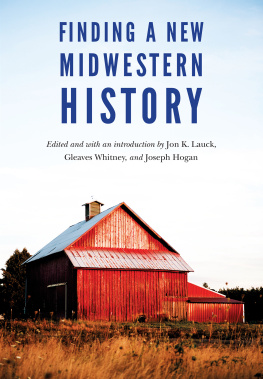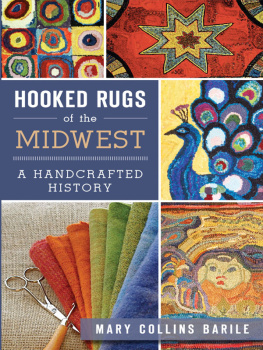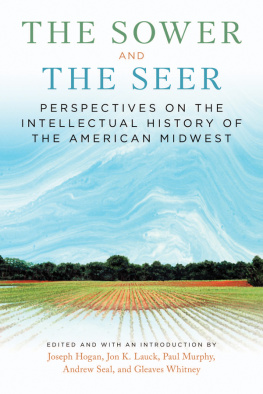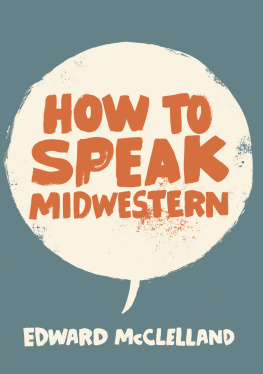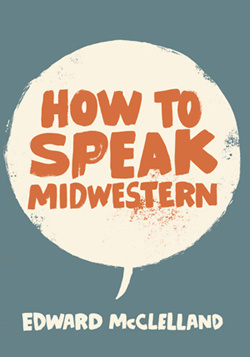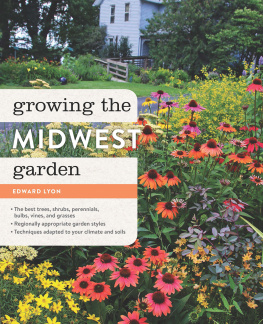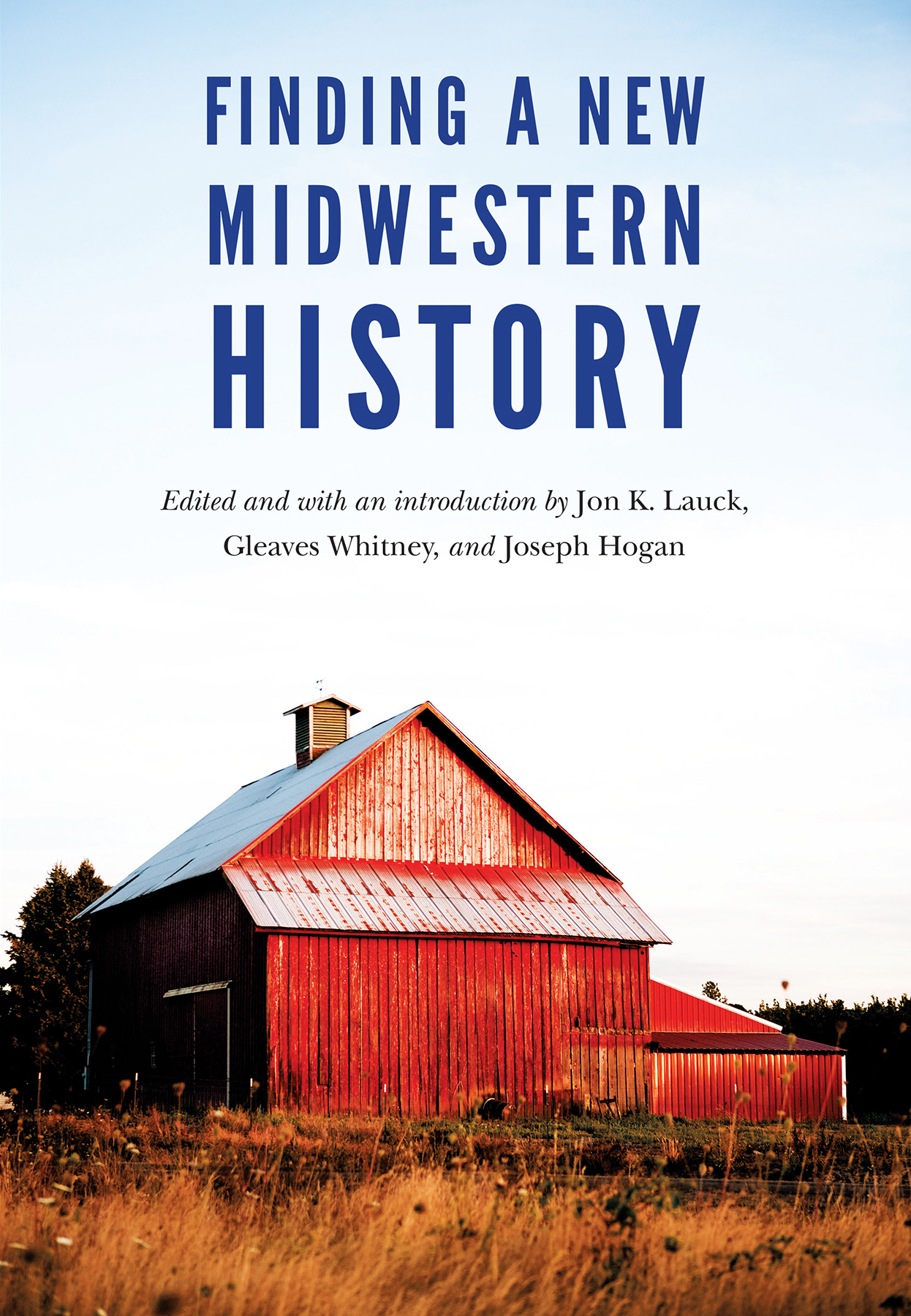
This new edited collection stands as an important guidepost for some of the more recent trends and issues in the new midwestern history. It is a superb collection on an important topic. It is a unique contribution to the rebirth of midwestern history.
Gregory Schneider, professor of history at Emporia State University and author of Rock Island Requiem: The Collapse of a Mighty Fine Line
[The editors and contributors] have made a strong case for revisiting midwestern regionalism.... The book is written in clear, precise, lively, and often evocative prose.
Michael Allen, professor of history at the University of Washington Tacoma
Engaging, provocative, and cogently argued.... This collection provides an insightful, perceptive, smart regional consciousness. This book will make its mark as an important contribution to the intellectual history of the Midwest as well as to the historiography of the region.
R. Douglas Hurt, professor of history at Purdue University and author of The Big Empty: The Great Plains in the Twentieth Century
Finding a New Midwestern History
Edited and with an introduction by Jon K. Lauck, Gleaves Whitney, and Joseph Hogan
University of Nebraska Press | Lincoln and London
2018 by the Board of Regents of the University of Nebraska.
Acknowledgments for the use of copyrighted material appear on , which constitutes an extension of the copyright page.
Cover designed by University of Nebraska Press; cover image iStock.com/timnewman.
All rights reserved.
Publication of this volume was assisted by The Virginia Faulkner Fund, established in memory of Virginia Faulkner, editor in chief of the University of Nebraska Press.
Library of Congress Cataloging-in-Publication Data
Names: Lauck, Jon, 1971 editor. | Whitney, Gleaves, editor. | Hogan, Joseph, 1946 editor.
Title: Finding a new midwestern history / edited and with an introduction by Jon K. Lauck, Gleaves Whitney, and Joseph Hogan.
Description: Lincoln: University of Nebraska Press, 2018. | Includes bibliographical references and index.
Identifiers: LCCN 2017053349
ISBN 9781496201829 (cloth: alk. paper)
ISBN 9781496208798 (epub)
ISBN 9781496208804 (mobi)
ISBN 9781496208811 (pdf)
Subjects: LCSH : Middle WestHistory.
Classification: LCC F 351 . F 46 2018 | DDC 977dc23 LC record available at https://lccn.loc.gov/2017053349
The publisher does not have any control over and does not assume any responsibility for author or third-party websites or their content.
Dedicated to the Memory of
James Seaton, 19442017:
husband, father, scholar, midwesterner
Contents
Jon K. Lauck, Joseph Hogan, and Gleaves Whitney
Michael C. Steiner
James E. Davis
Nicole Etcheson
Susan E. Gray
Gregory S. Rose
Paula M. Nelson
Jeffrey Helgeson
John E. Miller
Christopher R. Laingen
David R. McMahon
Michael Allen
Jon Butler
Jon Teaford
Zachary Michael Jack
James Seaton
James P. Leary
David Pichaske
Gleaves Whitney
Pamela Riney-Kehrberg
Hank Meijer
J. L. Anderson
Toward a New Midwestern History
Jon K. Lauck, Joseph Hogan, and Gleaves Whitney
About lunchtime on the first Saturday in May of 2015, midwesterners from Toledo to Chicago were caught off guard by the unfamiliar rumble of an earthquake underfoot. Registering a modest magnitude of 4.2, the tremor caused limited damagechimneys cracked, wall plaster splintered, cans of soup toppled from their shelves. Since such events are rare for the Upper Midwest, most commentators called the earthquake a freak occurrence. Near the epicenter of the quake, at Grand Valley State University in Grand Rapids, Michigan, historians of the American Midwest had gathered that same day at another extremely rare eventto discuss the history, culture, and geography of their region. The symbolism of these simultaneously rare occurrences was not lost on the scholars gathered in Michigan at a conference to talk about their region and its lost history.
In comparison to such regions as the South, the Far West, and New England, the Midwest and its culturethe history of its peoples and places; its literature, music, and art; the complexity and richness of its landscapeshad been neglected. And this neglect has been both scholarly and popular: historians as well as literary and art critics tend not to examine the Midwest seriously in their academic work, while the myth of the Midwest has not, in the popular imagination, ascended to the level of the proud, literary South; the cultured and storied Northeast; or the hip, innovative West Coast. The longtime regionalist and University of Nebraska historian John R. Wunder recently observed that large universities have abandoned the field of midwestern history, few scholars identify themselves as midwestern historians, research chairs in midwestern history are lacking, and graduate students are not trained in the field. Wunder argues that the infrastructure for the study of the
What the historians gathered in Michigan in the spring of 2015 hoped to effect was, if not a seismic shift in scholarly and popular sentiment, at least a few rumbles on the cultural landscape, or to move the needle a bit on the cultural Richter scale. They hoped to give greater energy to the effort to revive midwestern history, which has of late included the creation of a new Midwestern History Association devoted to advancing the study of the Midwest similar to the scholarly associations active in other regions. At long last, it seems, substantive progress is being made toward reviving the field of midwestern history. The scholars gathered in Michigan in the spring of 2015 sought to spur and support that revival, and the chapters gathered here, which are derived from the lectures at that conference, are designed to move us toward a new and more robust field of midwestern history. With the critical leadership and assistance of the Hauenstein Center at Grand Valley State University and the Midwestern History Association, the 2015 Finding the Lost Region conference was held again in 2016, 2017, and 2018, and the conference became a critical generator of emerging work on the Midwest that is leading to larger projects.
The precise shape of a revived field of midwestern history has yet to be determined. This hoped-for revival is in its infancy and its results will not be fully ascertainable for another decade or more. A bit of midwestern modesty is needed during the early years of this effort, instead of the issuance of grand pronouncements about what the future will hold or what the fields precise contours will be decades hence. It should be said, however, that the intended result of this book and the broader movement is to give life to a moribund field of study, to promote a diversity of viewpoints within this field, and to generally give legitimacy to the serious study of a large region of the United States that has been neglected by scholars.
More narrowly, the purpose of this book is to disseminate the fruits of that highly unusual 2015 conference in Michigan and thereby to share the enthusiasm of the historians gathered at the prospect of a more vigorous future for midwestern studies. The topics first explored by the historians at the Michigan conference, and now here in the following chapters, are various, each representing yet another facet of midwestern history and culture worth examining more deeply. We hope they can each serve as a jumping-off point for more studies and inquiries that will enliven the study of the Midwest. We intend that they serve as the beginning of a much broader conversation, not a premature narrowing of what the fields future parameters might be.
Next page
